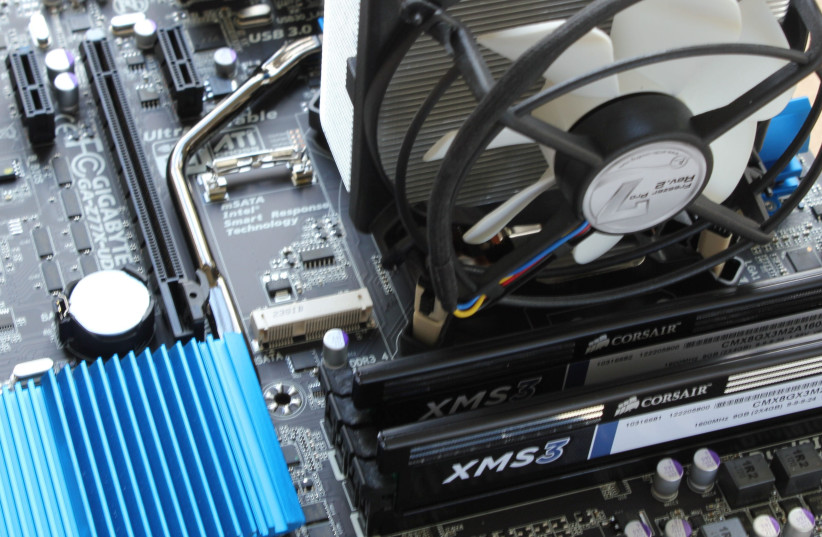The Israeli hi-tech sector is showcasing some resilience by remaining actively involved in significant acquisitions, even in the face of ongoing challenges, including the ongoing war between Israel and Hamas. Despite the difficulties and uncertainties that the region is facing, these companies are not only surviving but actively growing and expanding their global reach.
Innocom acquires Webiscope
Last week, Israeli tech firm Innocom, a well-known product distributor within the Aman Group, made a strategic move into the Observability field by acquiring Webiscope, in a deal valued in the millions of shekels. This acquisition expands Innocom’s product portfolio and enhances Webiscope’s existing customer base.
Webiscope is a leading player in the Observability sector, which has itself experienced significant growth, covering various monitoring and analytics aspects. This acquisition reinforces Innocom’s presence in sectors like cybersecurity, infrastructure, and communication. Notably, this decision to move forward with the acquisition occurred during a period of regional unrest, showcasing the sector’s dedication to providing innovative solutions to global customers.
Tomer Frey, CEO of Innocom within the Aman Group, expressed optimism about the acquisition’s potential to enhance solutions for customers and partners. “We are currently facing a challenging and intricate period in Israel, emphasizing the vital need to sustain employment continuity as much as possible to safeguard the economy and avert both an economic and security crisis,” he said. “With this acquisition, we will continue developing the Israeli hi-tech market and maintain the resilience of Israeli society.”

Shift4's expansion through the Finaro acquisition
In another example of the Israeli hi-tech sector’s resilience despite the ongoing conflict, US-based Shift4 moved to acquire Israeli cross-border e-commerce payments provider Finaro. Shift4, a global leader in integrated payments and commerce technology, completed the acquisition successfully late last week, in a strategic move that significantly expands the company’s reach, both in terms of geographic coverage and industry verticals.
Finaro’s role in driving Shift4’s international expansion into Europe is particularly noteworthy: The acquisition enables Shift4 to provide its card-present technology across Europe, indicating its commitment to expanding its global footprint in the face of regional challenges.
Jared Isaacman, CEO of Shift4, emphasized the significance of the acquisition, highlighting the potential for the combined organization to compete on a global scale.
“With Finaro’s tech center based in Israel, we realize that this comes during an extremely difficult time for those employees and their loved ones,” Isaacman said. “The ability to work together during these trying times is a testament to the talent and character of everyone on the Finaro team. We are proud to welcome them into our Shift4 family.”
Igal Rotem, CEO of Finaro, expressed his confidence in the merger’s success. “Having led the business from early on, I’m proud of how significantly we’ve grown Finaro over the past decade and thrilled to see the completion of this acquisition.
“I’m confident that Finaro’s best-in-class technology, talent, and capabilities will successfully merge into Shift4 and enable the combined organization to become a global leader in the payments space,” he said. “I want to thank Finaro’s devoted and talented Management Team and all our outstanding employees for bringing us to this point, and I look forward to seeing where the company goes from here.”
Making moves amid crisis
The hi-tech industry is currently experiencing a decline in investment and foreign investor interest, heightened by the ongoing conflict.
Last week, Finance Minister Bezalel Smotrich allocated a fourfold increase in funding, from NIS 100 million to NIS 400m., for the Israel Innovation Authority’s Fast-Track program to support the hi-tech sector during the ongoing hostilities, aiming to provide immediate relief to startups facing financial challenges due to the current state of affairs.
Before the conflict, Israel’s hi-tech sector was already facing decreased investment and waning foreign investor interest, leading to reduced funding for startups and a decline in unicorn creations. The outbreak of the war exacerbated these challenges, making it a turbulent time for one of Israel’s crucial economic drivers.
The Israel Innovation Authority’s program aims to alleviate some of the pressure on the struggling hi-tech sector.
“The hi-tech sector, which has faced declining investment volumes over the past 18 months, is also impacted by the current crisis,” noted Israel Innovation Authority CEO Dror Bin.
“This impact is more pronounced in start-up companies that urgently need funding, especially during a challenging period when it is difficult to conduct new financing rounds,” he said. “From mapping the needs of start-up companies in Israel, we understand that most of them are experiencing cash flow difficulties, delays and cancellations with potential investors, and the delay of significant projects and technological developments.”
